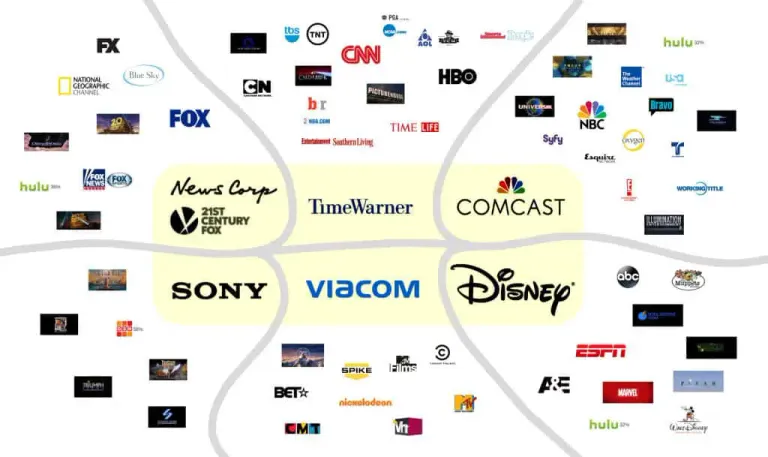This is a situation that keeps getting worse for the traditional media companies. It is so bad that they cannot deny what is happening. We are seeing a repeat of 2008 in terms of advertising, yet we are potentially dealing with a paradigm shift.
To me, this spells opportunity for those who are entering the market.
So let us dive into what is occurring with the companies and what this could mean for Web 3.0.
Billionaires Getting Tax Write Offs
Over the last decade, billionaires went on a spending spree when it came to media publications. The Washington Post, LA Times, and Forbes were all picked up by the money players. Whether they thought they could revitalize the industry or they simply wanted to control the narrative matters little.
In reality, we are seeing these properties worth a fraction of what they were purchased for.
This is leading to a large number of layoffs. The LA Times just got rid of 20% of its news department. Sports Illustrated fired everyone. The Washington Post, Daily News, Business Insider, and BaltimoreSun all let people go.
At the core of this is advertising. The drop in revenues associated with lower numbers is taking its toll.
The media sector is facing a crisis unlike anything seen since the 2008 financial mess, with layoffs and cost-cutting at every turn. The cuts have all occurred in the backdrop of declining web readership at many major publishers over the past year, as tech giants like meta (Instagram, Facebook) and Google TRY to keep consumers on their own platforms while old standby referrers like Twitter/X no longer deliver as many readers and the social media landscape fractures.
Watching the shift to digital is nothing new. The difference is that we are seeing it accelerating.
This means the billionaires that own these properties are losing a fortune. It is alright since they own a bigger fortune and, for most, it ends up as a tax write off. Jeff Bezos, for example, can take the negative impact from the Washington Post and use that to reduce his tax bill when it comes to selling Amazon stock to fund his rocket program.
Nevertheless, it does denote a shift in the landscape.
It is also not relegated to only print media. Broadcast companies are finding themselves in a similar situation. Layoffs are affecting that industry also.
Web 3.0 Opportunity
Where this is unrest, there is opportunity.
Media has always been the "attention economy". It was a game of eyeballs. This is what is often discussed by within Web 3.0.
Actually, there is little difference between the potential of Web 3.0 and what happened with the digitalization due to the Internet. From the legacy media standpoint, it is just another digital competitor.
The key is ownership. With Web 2.0, we have siloed platforms. This is a bit different under the Web3 model.
Community based initiatives might result in a completely different economic model. This is something that is being formulated so we will have to see how it turns out. However, the idea of a prosumer is nothing new. This emerged with the introduction of social media and expanded.
The "next generation Internet" simply adds equity to the equation instead of just income. Whereas X is now offering content creators a portion of the ad revenue, there is no equity stake for the users. It is still in the hands of Elon Musk and the investors.
Here is Web 3.0 might change things. Those who have stake are financially incentivized to not only produce the content, but also consume it. We are still dealing with prosumption, while adding another layer.
Once people figure this out, it could trigger a massive shift.
Changing Landscape
Companies like Rumble are making headway in breaking up the "monopoly" enjoyed by some of traditional social media platforms.
This is major since it entails breaking the routines of people. Once they are accustomed to switching, that becomes the norm.
It results in a landscape that will shift easier over time. Here is where Web 3.0 can take advantage.
By focusing upon the construction of our own network-state, the services offered by outsiders can come from within. Due to the circular nature of it all, we could usher in a new economic model, at least on a scale never seen before.
Think of it this way:
- products and services
- income
- equity
All are being offered by the same platform to the users.
Under this scenario, why would anyone turn to the traditional media for news, social media for engagement, or Web 2.0 for information? The goal would be to have all of that available within the Web 3.0 platforms.
Here is where the network-state concept comes in. An ecosystem is the blockchain (network) plus all platforms built on top. The stakeholders, both internal and external, also are part of the system since they can benefit and, are incentivized, to enhance what is taking place.
While most believe the future is multi-chain, actually, I foresee tribalism becoming the norm. People are going to start building where their "home" is. As the infrastructure is put in place, the ecosystem will expand from within. There will obviously be outside interest, i.e. other joining. The foundation, however, will come from the "pioneers" or "trailblazers".
For now, we see legacy media on the ropes. They are suffering from a dying model. It is time for Web 3.0 to start looking at the market and taking advantage of the opportunities.
The door is being opened. Now it is up to us to walk through.
Posted Using InLeo Alpha
